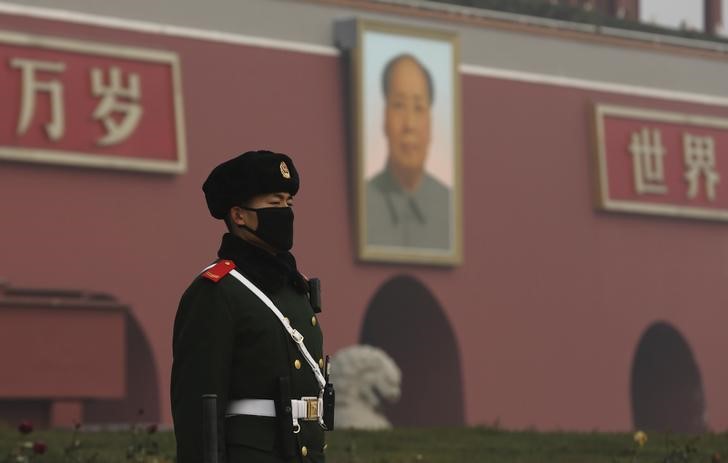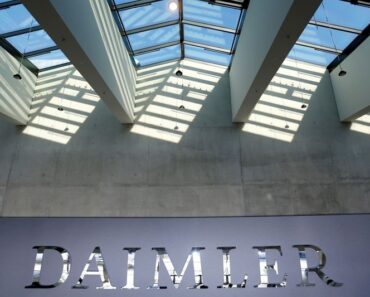This post was originally published on this site

Investing.com — The news out of China overnight has rattled European stock market on Friday, for two good reasons.
Firstly, the National People’s Congress, the country’s legislative assembly, dropped its target for gross domestic product growth for the first time in three decades. At best, this could be interpreted as an admission of high uncertainty about the economic rebound from the pandemic. More likely, many will see it as a sign that not only are the economic numbers out of China going to be embarrassing for the Communist Party for some time to come, but that information will be more and more restricted, making it harder and harder for both direct and portfolio investors to base their decisions on fact rather than guesswork.
ING’s Iris Pang said she still expects the Chinese economy to shrink by 1.5% this year, given the absence of any more decisive fiscal stimulus measures (she expects limits on local government borrowing to be raised later this year to stop any worse outcome).
Secondly, the imminent crackdown on Hong Kong’s autonomy sends a host of negative signal to global investors, raising the risk of more civil disorder and further economic contraction, and a long-term levelling-down of investor protections and freedoms in the former U.K. colony.
And that’s before one factors in the effect of the U.S. reaction. In addition to the largely symbolic sanctions bill proposed in the U.S. Senate on Thursday. Hong Kong’s access to the U.S. market now depends on Capitol Hill’s interpretation of how well China respects its autonomy. It should go without saying that any crackdown will have already weighed the costs and benefits, and would imply that Beijing has accepted a further deterioration of relations with the West as an acceptable price for greater domestic stability – even if that means a fresh trade war.
The Hang Seng’s 5.6% drop on Friday doesn’t seem at all unwarranted against that backdrop.
In Europe, the first-round effects have been the usual ones. HSBC and Standard Chartered (OTC:SCBFF) were among the worst-performing banks in Europe, while Richemont, whose Hong Kong boutiques are disproportionately lucrative in normal times, also fell 3.1%. The benchmark Stoxx 600 fell 0.8%.
Investors have already positioned for hard times ahead. Burberry (LON:BRBY) stock – another one highly exposed to Chinese demand – rose 2.5% after the group released its fiscal 2020 results, which included the now familiar routine of suspending dividend payments, pulling guidance and reassuring on liquidity. Like many others, it expects the current quarter to mark the low point of the contraction, noting that half of its stores are still closed.
What Burberry had to say about current trends was nonetheless interesting, suggesting that Chinese sales may grow at the expense of other regions this year, as the collapse in outbound tourism redirects spending to the Chinese market.
The U.K. group said it was “encouraged by the recovery we are experiencing in Mainland China and Korea with cumulative sales in both markets since the beginning of April ahead of the prior year, albeit it is likely there is a benefit from some repatriation of spending in Mainland China.”
But it warned that that lack of tourism spending will be hard to make up.
“As government restrictions ease across the globe, consumers in different markets are likely to respond in distinct ways, with the travelling consumer likely to take longer to return. As a result, it could take some time for the luxury industry to recover to pre-crisis levels.”



